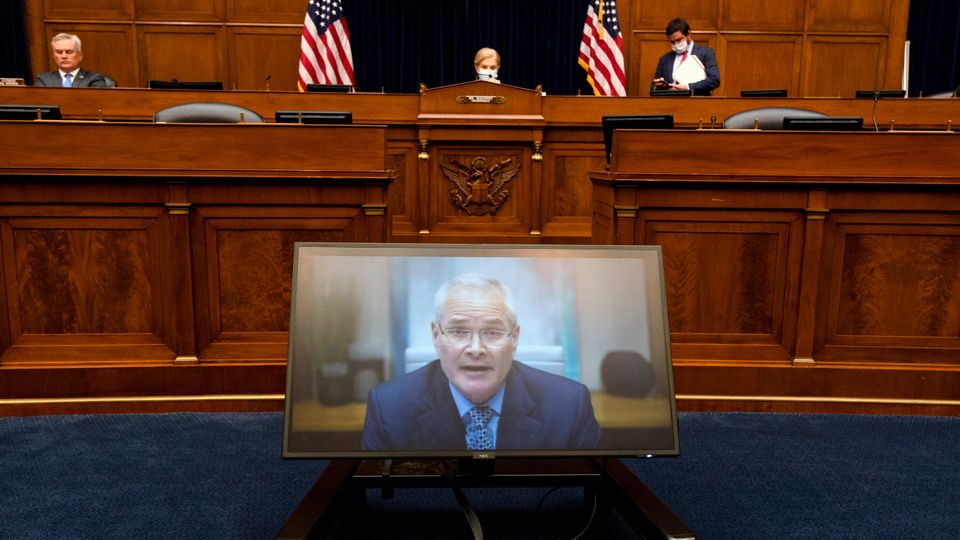Climate Must-Reads: New Document Dump + House Oversight Report, Climate Disinfo On Elon's Twitter, the Other COP + More

Lots of big climate stories unfolding this week! Here's a rundown of what I've been following, and why:
House Oversight Committee Climate Disinformation Investigation Has Concluded.
Today brought the final report from the House Oversight Committee on the findings of its investigation into climate disinformation, as well as another release of documents secured by the Committee's subpoenas of the country's top oil companies and their trade association, the American Petroleum Institute. I'm still making my way through them and will have more detailed analysis soon. In the meantime, this Washington Post story is a good overview, although I'll just note that—as with The New York Times, which got exclusive pre-release access to the first round of documents—it focuses on stuff I pretty much take for granted at this point and leaves out some of the bigger reveals (for example, McKinsey's work advising BP on partnering with Exxon for CCS; BP's thinking on funding its carbon capture initiative as Princeton; and the ins and outs of the American Petroleum Institute's Climate Action Framework). Again, more on that next week!
A Wave of Climate Disinformation on Elon's Twitter
Last Friday, The Guardian's Oliver Milman dove into the rise of climate denial, climate skepticism, and plain old harassment of climate scientists on Twitter, following Elon Musk's takeover of the site. It's something I know has pushed several climate scientists to abandon the site altogether in favor of Mastodon. In the wake of that Guardian article, Andy Revkin hosted a Twitter spaces discussion of this trend, featuring researchers Kim A. Nicholas (whose work on the impact that elite consumption patterns have on emissions reductions has been critical to injecting nuance into the false inviduals vs. systems debate on climate) and Glen Peters, research director at the Center for International Climate Research. It was a fascinating discussion, well worth checking out, despite the fact that the one question that got through was, of course, from a skeptic! This week, Media Matters put out a related study, which found that some of the most dominant voices in climate denial are increasing their follower counts by record numbers now as well. Are they bots? Is the platform successfully wooing climate deniers? Or has it just become more attractive to rightwingers in general, who tend to be ideologically opposed to accepting climate science? No one knows and only time will tell, but it's strange that a guy once lauded as a climate hero has effectively killed off #ClimateTwitter in less than a month.
The Other COP: COP15 Biodiversity Summit in Montreal
If you've never heard of the biodiversity COP it's probably because the media rarely covers it. While multiple outlets had teams on the ground in Egypt to cover COP27, far less attention has been given to COP15 in Montreal, despite the fact that, as UN Secretary-General António Guterres told reporters this week:“Humanity has become a weapon of mass extinction… with a million species at risk of disappearing forever." One of the key goals of this years biodiversity COP is a commitment from global leaders to protect 30% of the Earth’s land and sea by 2030 through “systems of protected areas," as well as potentially other measures. Joseph Lee notes in Grist that "the International Indigenous Forum on Biodiversity (IIFB), a caucus of Indigenous representatives and activists established in 1996 to advocate for Indigenous peoples at international meetings, has been advocating to include language that protects Indigenous rights in the final agreement." That's because the establishment of protected areas has been used in the past as a pretense for evicting Indigenous peoples from their lands. "In the Democratic Republic of the Congo," Lee writes. "Indigenous Batwa were evicted, killed and group raped during a violent eviction campaign from Kahuzi-Biega National Park under the pretense of protecting the UNESCO World Heritage Site from poachers and deforestation. In Tanzania, nearly 150,000 Indigenous Maasai could be evicted from their homes to create game reserves and protected areas."
In The Guardian, Rosemary Collard and Jessica Dempsey urge COP15 negotiators to look beyond targets like the 30x30, noting that while preservation zones have increased since the 1970s, extraction has also tripled. "This unrelenting expansion of forestry, mining, monoculture farming and fossil fuel developments is a central driver of biodiversity loss," they write. "Ending or at least reducing 'extractivism' must be front and centre at Cop15."
Vanuatu Once Again Leading on Climate Accountability
Somini Songupta has a terrific piece in The New York Times this week tracing the outsized influence that tiny Vanuatu has had on the push toward climate accountability, from first broaching the subject of loss and damage back in 1991 to introducing the fossil fuel non-proliferation treaty earlier this year to its latest move, asking the International Court of Justice to consider whether governments have “legal obligations” to protect people from climate impacts, and whether the failure to do so could result in "legal consequences" under international law. "In short, it’s asking the court to say whether countries could be sued for climate inaction," Songupta writes. Well worth a read!





